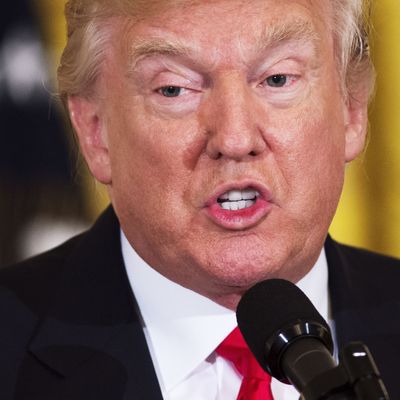
One of the most plausible predictions of the kinds of long-term damage Donald Trump might do to the United States was written by Matthew Yglesias a week after the election. He described a scenario in which Trump used government power to coerce business to support him and his agenda. “Those who support the regime will receive favorable treatment from regulators, and those who oppose it will not,” in this haunting scenario, which resembles the nexus between business and government that prevails in Russia and other authoritarian capitalist states.
Noam Levey reports an example of this already happening. The thrust of Levey’s story is focused on the belief by insurers that uncertainty fostered by the Trump administration is killing health-care exchanges. Deep in the piece, Levey describes a Trump staffer threatening to withhold cost-sharing-reduction payments, called CSR, which are a vital part of making individual insurance profitable. “At one recent meeting, Seema Verma, whom Trump picked to oversee the federal Medicare and Medicaid programs, stunned insurance industry officials by suggesting a bargain: The administration would fund the CSRs if insurers supported the House Republican bill to repeal the Affordable Care Act,” reports Levey.
The Trump administration has pursued policies that are extremely friendly to incumbent businesses. But there is a discretionary quality to Trump’s governance that is ripe for abuse. Which firms will he call out for eliminating jobs? Which ones will he praise? Trump’s ability to hand out discretionary favors to pliant firms is a power to coerce large segments of the business community to endorse, or at least not oppose, his agenda.






























